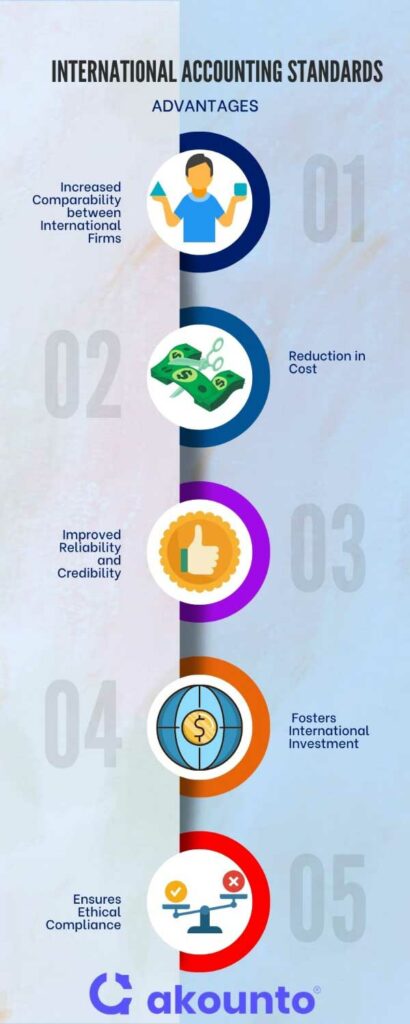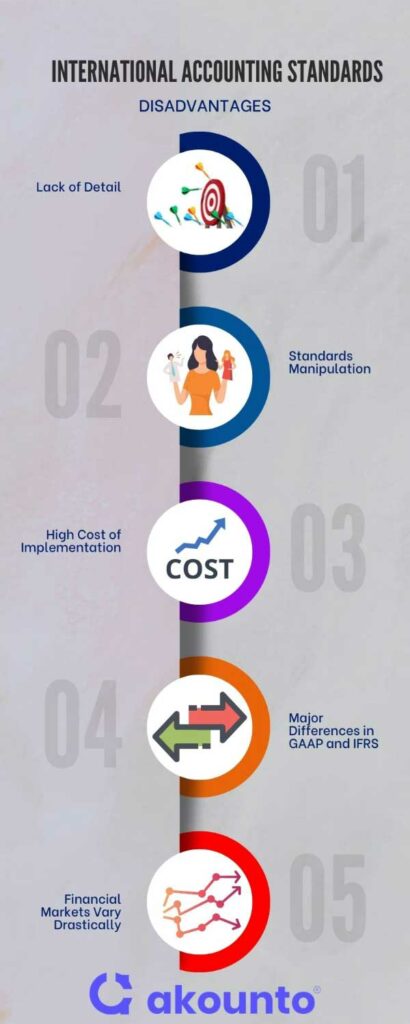What is International Accounting?
International accounting is a branch focused on using specific accounting standards while balancing a company’s books overseas.
International accounting involves keeping track of the tax rules and accounting principles that can affect a business transaction or operation. International accounting has become an essential subset of accounting and business in the present century, given the spread and effectiveness of eCommerce.
[ez-toc]
Businesses are no longer limited to a region or country, which calls for convenience and encourages cross-border business partnerships.
International accountants provide accounting services to companies and businesses that operate in various countries or deal with businesses from around the world. Their role is even more critical when the respective financial markets employ different financial accounting guidelines, and the statements must be maintained accordingly.
Roles and Responsibilities of an International Accountant
Following are the different types of roles and responsibilities that an international accountant is in charge of:
- Ensure compliance with the accounting rules and regulations in the country a business operates.
- Verify the accuracy of the financial reports according to the requirements of the respective governing body.
- Research and recommend feasible international business opportunities.
- Stay up-to-date with the changing tax and accounting principles around the world.
- Prepare financial reports on compatible accounting principles for the management and stakeholders of the company to help with decision-making.
- Prepare financial reports for the business partners and management departments in other countries.
- Oversee financial transactions with foreign companies, including mergers and acquisitions.
What are International Accounting Standards (IAS)?
International accounting standards (IAS) were the first universal standards issued by the International Accounting Standards Committee (IASC). The IAS was replaced in 2001 with the International Financial Reporting Standards (IFRS) by the International Accounting Standards Board (IASB).
The European Union has adopted IFRS, while some major capital markets, including the United States, Japan, and China, still have their reporting standard boards.
All public companies and the corporate sector in the United States use the U.S. Generally Accepted Accounting Principles (GAAP). The U.S. Exchange Commission also binds the securities markets to follow GAAP for recording their financial data.
America’s accounting-standards body, the Financial Accounting Standards Board (FASB), is responsible for releasing guidelines that adhere to these principles. FASB and IASB started a project to converge the two sets of international accounting principles together in 2002.
It has not yet been done due to severe legal and regulatory issues, mainly the Dodd-Frank Wall Street Reform and Consumer Protection Act.
Benefits of International Accounting Standards

Countries with international business opportunities greatly benefit from the IFRS-compliance. The following are the benefits of adopting the International Financial Reporting Standards (IFRS):
Increased Comparability between International Firms
Businesses around the globe are interacting and working with each other more than ever. International accounting standards, widely accepted and sufficiently accommodating, are extremely important to allow convenient and cost-effective comparability.
With single standards and regulations, a firm would not have to hire human capital to debride, analyze, and filter the accounting details for the stakeholders to make an effective decision.
Reduction in Cost
International financial reporting standards save the hassle and cost of consolidating financial statements separately for the global audience. Financial reports of a company become automatically acceptable and valid in IFRS-compliant countries. This broad acceptability provides convenience and cost-effectiveness for international business dealings.
Improved Reliability and Credibility
A single standard accepted and applied in a wide range of countries improves the credibility and hence the reliability of a company’s financial statements. This eliminates the need for preparing alternative financial reports for two different potential investments. The investor may have to request the businesses to provide their financial reports on a specific basis of accounting.
The universality of these accounting standards subjects all companies to the same guidelines, making it easier to compare company ratings and reputation. With a single authoritative body, international accounting standards considerably improve the credibility and reliability of financial reports.
Fosters International Investment
Universal standards of international accounting make it convenient and cheaper for big investors to compare the performance of various international businesses. This gives the business owners and companies an edge in raising capital and lets the investor make an informed decision.
Besides, a central authoritative body ensures transparency of financial reports as well. So that no matter where the business operates or investments are being made, IASB compliance ensures confidence and accountability.
Ensures Ethical Compliance
Some countries may provide financial incentives that are considered illegal or ethically unacceptable in other nations. Investors may prefer putting their investments in relatively lenient governments, creating a non-uniform investment pattern.
Generalized standards for international accounting foster cross-border investments independent of controversial perks and incentives. It also eliminates the political and cultural factors interplaying with economic growth.
Universal ethical compliance provides a level playfield for the companies to grow while adhering to the same guidelines. International accounting standards free businesses from national-level accounting standards, which restrain business opportunities in some countries.
International accounting guidelines allow varying jurisdictional circumstances to ensure minimum IASB intervention. IASB, for instance, does not standardize the format of the financial reports. Companies can use any format suitable for the presentation of their financial statements, but the guidelines for entries would be universal.
Limitations of the International Accounting Standards

Global standardization of accounting principles may seem more uniform and business-friendly to promote international trade. But it has some limitations and disadvantages as well. These limitations are why the biggest markets, such as the U.S. and China, have still not adopted IFRS.
Lack of Detail
Global accounting standards had to be accommodating and widely acceptable. For that purpose, the international accounting standards board (IASB) has used a more flexible approach to financial reporting principles than the alternative financial accounting standards in several countries.
Generally accepted accounting principles (GAAP) by the financial accounting standards board (FASB), for example, standardizes the financial reporting rules. So that the users, creditors, investors, and the general public can review and compare the financial information to the industry standards. IFRS, on the other hand, tends to be flexible, and its compliance results in non-consistent financial reporting.
Standards Manipulation
The flexibility in the IFRS’ financial reporting rules can bring various advantages. But its biggest con will be the room for standards manipulation by the companies to show the results they desire. A company can choose an inventory valuation method that puts more money on the profit and loss statement, projecting a better position for the company.
One of the significant challenges IASB faces with implementing IFRS is the various versions of IFRS that develop due to its flexible nature, depending upon the country’s regulations.
Some IFRS principles are complex and need a more detailed interpretation of rules and regulations. This flexibility and lack of interpretation compromise the role of international accounting standards, which is consistent and transparent reporting.
High Cost of Implementation
“The U.S. Securities and Exchange Commission (SEC) estimates it would cost 12% of the global revenues to implement IFRS standards in the United States”.
The companies listed on the SEC may be able to absorb the costs of adoption, staff training, and entirely shifting to a new accounting system. In the case of universal implementation, small businesses offering local goods and services will bear the actual brunt.
Human resources will be challenging to arrange, firstly. Secondly, it will be another huge cost for businesses. Also, U.S. companies will require huge human capital for the IFRS accounting system’s transition, implementation, and smooth running.
Major Differences in GAAP and IFRS
Generally Accepted Accounting Principles GAAP is the gold standard for accounting in the U.S. and neighboring states such as Canada. The U.S. is one of the biggest capital markets in the world. If IFRS is implemented, the whole picture of the market, businesses, assets, and earnings will change.
The U.S. GAAP allows LIFO (Last-in, first-out) costing method for the inventories. The IFRS regulations only allow the FIFO (First-in, First-out) and the average method of costing inventories. If this transition occurs, there will be understatements or overstatements of inventories. IASB must find solutions for such technical inconsistencies for effective implementation.
IFRS allows the capitalization of development costs under certain conditions. Whereas the U.S. GAAP expenses them out. Under IFRS implementation, the expenses will decrease suddenly, and the profits will increase. The position of a company will suddenly show better under IFRS than its financial position under GAAP.
Financial Markets Vary Drastically
Political and cultural codes of businesses are predominant in many countries. Capital markets work differently in different countries, even if these local factors are put aside.
In countries where bank financing is a significant source of raising capital, strong balance sheets are the top priority of accounting. At the same time, businesses in some countries rely on selling shares to raise the required capital. In those cases, financial profitability takes an edge over the balance sheet and the assets.
Also, IFRS allows the revaluation of assets, while many other accounting standards, such as GAAP, do not. In the case of IFRS adoption, the value of assets will significantly increase. So, the way a capital market works in a certain region is an important point to consider.
The IASB cannot release one set of accounting standards and guidelines that fits all. There will have to be enough space and flexibility for accommodation, which then compromises the consistency and stringency of the principles.
Akounto is an expert in the proper maintenance of your financial reports in accordance with local and international accounting standards. Sign up with Akounto to get started with professional bookkeeping services today!



